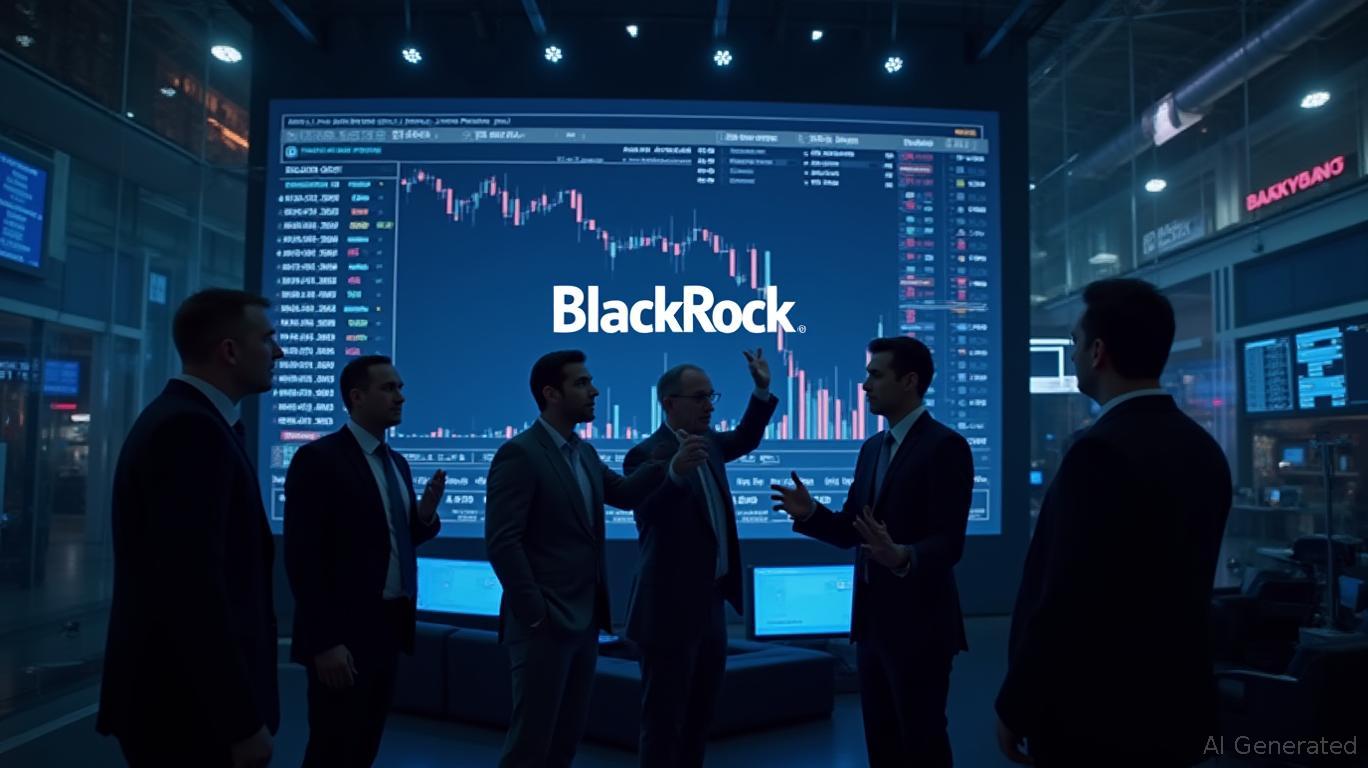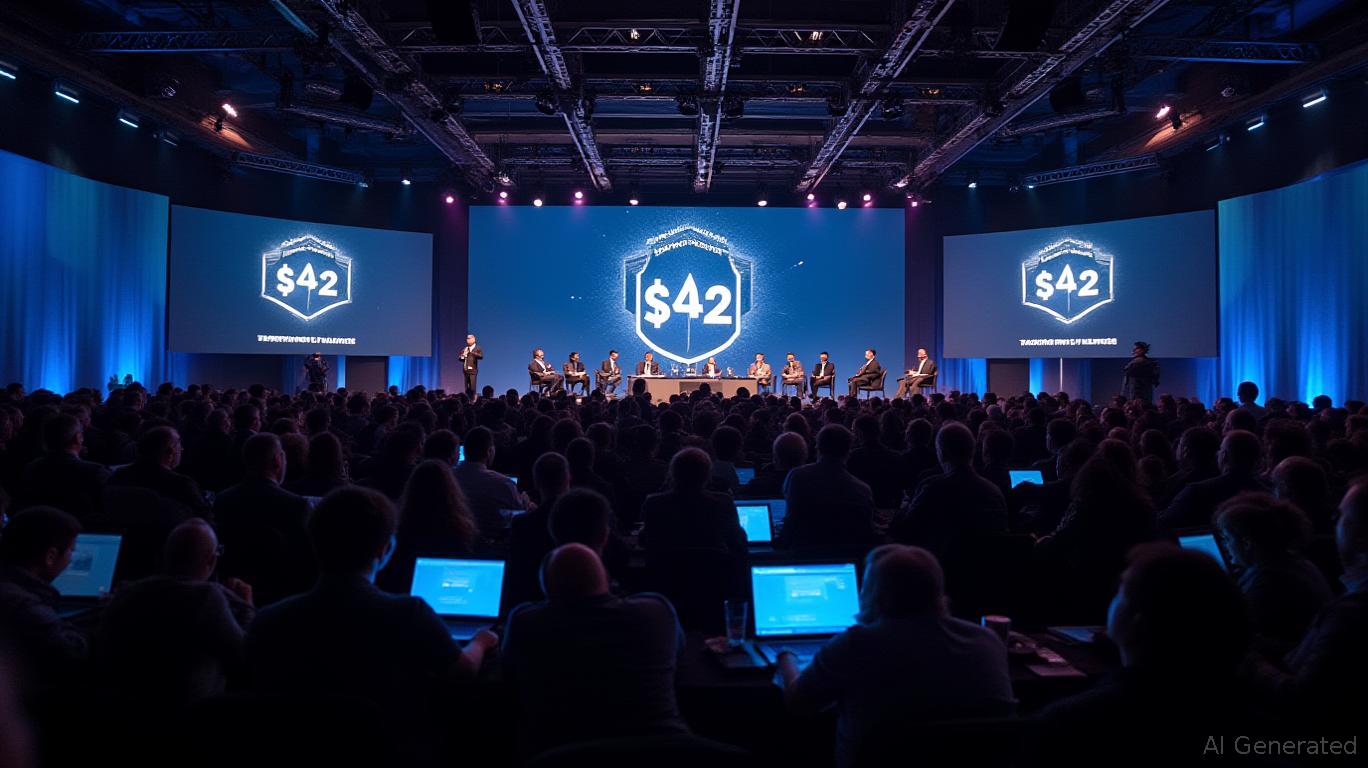Crypto hacking losses fall by 85.7% as improvements in security surpass ongoing trust issues
- PeckShield reported 85.7% drop in October 2025 crypto hacking losses to $18.18M, attributed to improved security measures and threat response. - Smaller-scale attacks dominated, contrasting prior large DeFi breaches, while MEXC faced backlash for freezing $3M from crypto whale "The White Whale." - Crypto VC funding surged to $5.11B in October, with AI, prediction markets, and RWAs attracting most capital led by Coinbase Ventures and Binance Alpha. - Orama Labs surpassed $3.6M TVL after security audits, s
According to a
The drop in losses points to the wider implementation of advanced security strategies, such as layered authentication, continuous threat detection, and active cooperation with authorities to combat illegal fund flows, the
However, some issues remain. In October, leading exchange MEXC came under fire for mistakenly freezing $3 million belonging to the crypto whale known as "The White Whale," as reported by
Elsewhere, the industry’s overall expansion continued, with crypto venture capital investments reaching $5.11 billion in October—the second-largest monthly figure this year, as
Security improvements have also expanded beyond just hacking prevention. Orama Labs, a protocol focused on DeSci and AI-powered tokenized assets, exceeded $3.6 million in total value locked (TVL) after passing audits by PeckShield and Certik, as
Industry experts advise that, despite the positive results in October, ongoing progress depends on regular security reviews, user awareness, and decentralized protection mechanisms, the Bitcoin World analysis cautioned. “The growing focus on AI and RWAs shows investors are seeking sustainable value instead of short-term hype,” a venture analyst told Coinotag.
As the industry adapts to these changes, the October 2025 statistics provide a rare moment of optimism. With losses sharply reduced and investment on the rise, the crypto sector seems to be moving toward a safer, innovation-focused future—though those ignoring new risks may still face challenges.
Disclaimer: The content of this article solely reflects the author's opinion and does not represent the platform in any capacity. This article is not intended to serve as a reference for making investment decisions.
You may also like
Regulatory Concerns Intensify with the Introduction of South Korea's KRW1 Stablecoin into Arc's International Network
- Circle's Arc blockchain, designed as an "economic operating system," offers sub-second finality and USDC-based fees to streamline global finance. - South Korea's BDACS plans to deploy KRW1, a won-pegged stablecoin on Arc's testnet, bridging Korean markets to global stablecoin networks. - Arc's testnet has attracted 100+ institutions including BlackRock and Visa, aiming to redefine cross-border payments and asset tokenization. - Regulatory debates persist as South Korea's Bank of Korea proposes restrictin

Bitcoin News Update: BlackRock's ETF Supremacy Raises Concerns for Altcoin Futures
- BlackRock's iShares Bitcoin Trust ETF dominated 2025 with $28.1B inflows, overshadowing $1.27B outflows from other spot Bitcoin ETFs. - Altcoin ETFs face uncertainty without BlackRock's support, despite JPMorgan/Bitget's $3–8B inflow projections for Solana and XRP. - DeFi innovation advanced via Avalanche's BTC.b bridging, while Blazpay and BullZilla presales attracted $1M+ in speculative capital. - Bitcoin traded near $110,000 amid $488M ETF outflows, with Saylor forecasting $150,000 by year-end driven

Romania Prohibits Unregulated Prediction Markets, Classifying Them as Gambling
- Romania's ONJN banned unlicensed prediction market Polymarket, classifying its user-driven bets on real-world events as gambling requiring a license. - Regulators warned that treating counterparty betting as "trading" creates legal risks for player protection, AML compliance, and state revenue collection. - The crackdown follows $600M+ in wagers on Romanian elections and joins bans in France, Belgium, and the U.S., where Polymarket faces EU licensing hurdles. - Despite securing a CFTC-licensed exchange a

Monero Faces a $342 Test: The Assurance of Privacy Against Widespread Doubt
- Monero (XMR) trades near $342, with traders monitoring key support/resistance levels amid mixed sentiment. - Analysts highlight $342 as a critical threshold; breakouts could drive bullish momentum, while dips below $325 risk corrections. - Privacy coin faces challenges from regulatory uncertainty and cautious institutional adoption despite growing DeFi use cases. - Broader crypto market shows mixed trends, with NFT sales declining and tech stocks like Nvidia surging.
